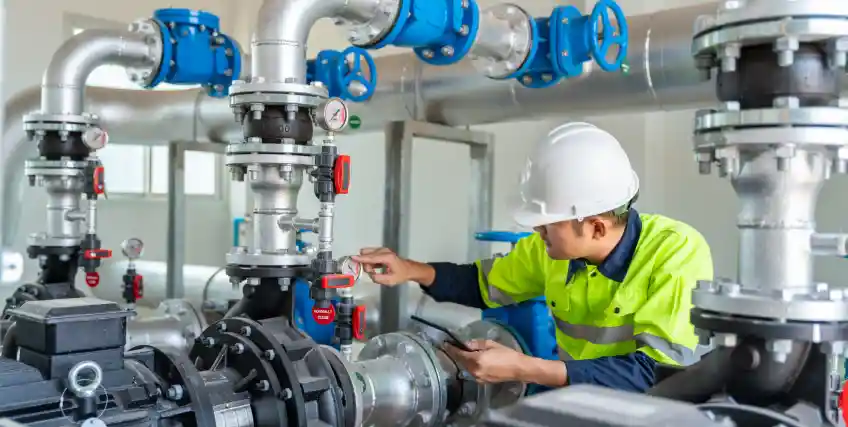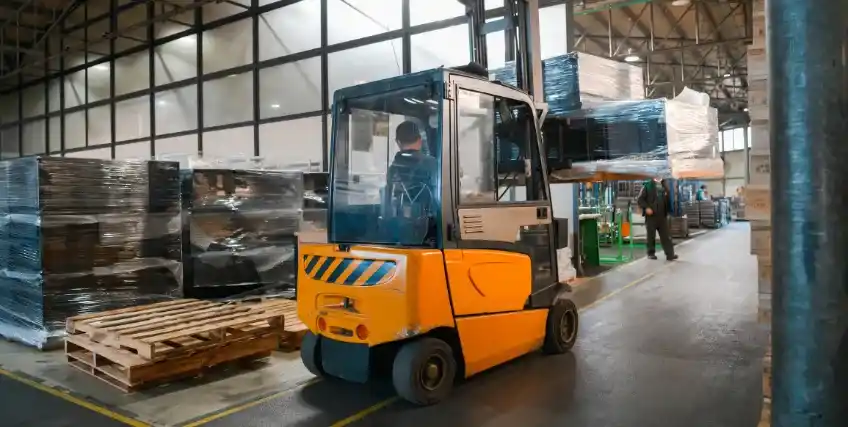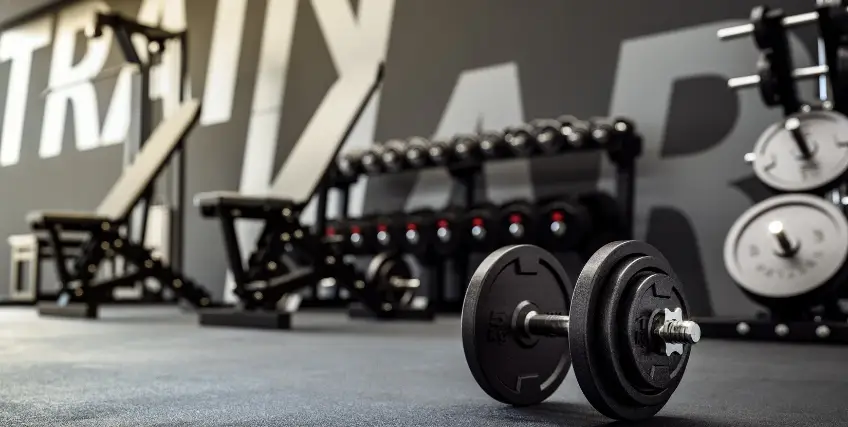Possible Tax Benefits of Commercial Equipment Financing What You Need to Know
August 14, 2025 | Last Updated on: August 14, 2025

Commercial equipment financing plays a critical role for businesses looking to acquire essential assets without tying up large amounts of cash.
Not only does it facilitate access to the latest technology and machinery, but it also offers various tax advantages that can significantly impact a company's bottom line.
Understanding these potential tax benefits, as well as how they interact with the broader financial strategies of a business, is crucial for entrepreneurs and financial decision-makers seeking to maximize value from their investments.
What Is Commercial Equipment Financing?
Commercial equipment financing is an access route that saves businesses money on costly purchases of items such as machinery, vehicles, or technology by not having to pay for it at one time. Instead, the cost is distributed over time with a loan or lease. This helps conserve cash flow and allows companies to invest elsewhere for future growth.
In commercial equipment financing, the company takes a loan to buy equipment and pays it back with interest, which can be a fixed rate, over a specific period of time. The equipment purchases are typically used as collateral, and therefore, if the payments are defaulted upon, the lender can repossess it. This collateral typically provides competitive interest rates and favorable terms and so makes it possible even for small business enterprises.
Leasing is still another type through which companies remit fees for using machines for a set period, usually with potential buyouts or upgrades in the future. Leasing circumvents buying but offers access to new tools with possible tax advantages.
Overall, commercial equipment financing fosters business needs and expansion by offering timely access to required equipment, maintaining working capital, and providing flexible payment arrangements. It also typically features tax benefits such as deductible payments or interest and accelerated depreciation. This makes it a beneficial tactic for companies with the goal of remaining competitive, effectively managing cash flow, and keeping pace with technological demands.
Depreciation Deductions and Section 179
One of the primary tax advantages of commercial equipment leasing is the ability to claim depreciation and upfront cost allowances. Section 179 of the IRS code, in the United States, allows companies to deduct the total purchase price of qualified equipment bought in the tax year within certain limits.
That is, if your business finances a piece of new equipment, it is frequently possible, provided it is structured correctly, to deduct the entire cost in the year the equipment is placed in service, instead of spreading it out over several years. Accelerated depreciation can be a huge source of tax relief, releasing additional funds for reinvesting and expansion of business goals.
In addition to Section 179, equipment also continues to qualify for regular depreciation under the Modified Accelerated Cost Recovery System (MACRS). MACRS enables businesses to depreciate the cost of qualified property more quickly, thereby reducing taxable income in earlier years of equipment ownership.
By combining Section 179 with bonus depreciation provisions, which allow for large first-year deductions for qualifying assets, these tax benefits can be further enhanced. It is essential to structure the commercial equipment finance agreement to maintain eligibility for tax deductions, especially under Section 179, by ensuring the business retains sufficient incidents of ownership at the time of acquisition.
Whether financing used equipment or new, maintaining ownership indicators is key. Work only with reputable, FDIC-insured lenders, and remember that all financing is subject to credit approval.
Interest expense deductions on equipment finance loans
Another significant benefit of commercial equipment financing is the ability to claim interest expense tax deductions. Interest on business asset finance loans is generally tax-deductible as a business expense, provided that these financing programs are solely for business use and are for business equipment purchases.
These terms can reduce income tax and lower the cost of financing effectively. Since interest is deductible against tax payments and depreciation allowances are available, this payment of interest becomes a stimulus for even companies with qualified cash to seek commercial equipment financing over outright purchase from within.
Lease payments and tax treatment
For companies opting for business equipment leasing as opposed to ownership, there are some special tax advantages involved. Leasing payments are typically treated as operating expenses and can be deducted in full on a business's tax return, provided the lease arrangement meets some specifications.
This format is particularly attractive to firms that do not want to risk asset depreciation or want frequent technology upgrades. Even though the lessee does not own the asset and hence cannot depreciate it, the tax deductibility of lease expenses offsets taxable income, akin to interest and depreciation tax savings on equipment purchased.
Firms should closely monitor the treatment of the lease, operating leases (true leases) or financing leases (capital leases), as they are treated differently for tax purposes. Lease payments are generally deductible in an operating lease, while depreciation and interest expense on the lease obligation may be deductible in a capital lease. Consulting with a tax professional will help further clarify the proper approach to treatment based on an individual firm's financial profile and long-term needs.
What is Right? Business Equipment Loans, Financing, and Leasing
Commercial equipment financing is a broad term that encompasses traditional term loans, equipment loans, and leasing agreements. All of these options have their own tax approach, cash flow control, and operating leeway implications.
Business equipment financing and business equipment loan structures place title (and hence depreciation deductions) in the company's hands, while leasing spreads those advantages to the lessor but provides more technological freedom and possibly easier expense deductions.
In choosing a financing structure, firms must weigh the major tax benefits, depreciation, Section 179 write-offs, deductibility of interest expenses, and lease payments that are deductible against factors such as ownership, residual value at loan maturity, and how easily assets can be upgraded or resold at the end of their useful life.
Cash Flow and Working Capital Preservation
Apart from the tax benefits realized directly, commercial equipment financing indirectly enhances a company's financial status by maintaining working capital and smoothing out cash flow.
These retained levels of liquidity translate to heightened responsiveness and flexibility to changing business conditions.
By taking advantage of the tax benefits associated with equipment financing, companies can allocate more resources to research and development, marketing, or expansion, ultimately fueling growth and competitiveness in their markets.
Implications for Different Types of Assets
The assets that are eligible for tax-favored financing arrangements are long-term, ranging from manufacturing equipment, construction equipment, office equipment, cars, medical equipment, etc. The trick is to ensure that the assets are eligible under the guidelines specified by the IRS or other tax authorities of a given country under capital expenditure deductions.
There is a need to stay updated with shifting tax laws because governments tend to alter depreciation timetables, purchase thresholds that qualify, and phases of deductibility to lure investment or curb excessive write-downs in an industry.
Working with tax and financing professionals
While commercial equipment financing offers valuable tax benefits, structuring deals to maximize benefits can be complex. The nature of the agreement, timing, documentation, and classification of the asset are all important considerations that qualify for various deductions.
Businesses are strongly recommended to work with financing professionals and tax professionals when selecting a commercial equipment financing option. This will guarantee that not only do they select the ideal financing product but also stay in compliance with all tax regulations to prevent the risk of costly audits or disallowed deductions.
Planning for future tax reform
Since tax laws are unpredictable, the benefits of commercial equipment financing must be considered in relation to current and prospective legislative trends. For instance, current United States tax reforms have raised and later modified the size of Section 179 and bonus depreciation rules, and similar trends can be noted in other economies too.
Firms that remain ahead of tax policy developments through continuous monitoring and adaptation can establish themselves well in advance, while firms that ignore these developments risk financial loss or non-compliance.
Final Thoughts
Tax advantages to commercial equipment financing are among the most significant factors that make it attractive to businesses to optimize asset acquisition methods. Under the identification and application of depreciation-based, Section 179 expensing, write-off of interest expense, and deductibility of lease payments, business entities are able to significantly reduce their tax burden. At the same time, cash flow preservation and operating flexibility allow business entities to thrive in dynamic markets.
Sophisticated business leaders will see equipment finance lending options not as a short-term capital problem but as a means to achieve long-term fiscal success and stability. Adding financing and tax planning into their broader business strategies, companies are able to use commercial equipment finance as a driver of sustainable growth and ongoing innovation. However, it is advised to always consult with a tax professional before making any decisons.
FAQs About Commercial Equipment Financing
What are the possible tax benefits of equipment financing?
Commercial equipment financing contains important tax benefits, such as Section 179 deductions, depreciation advantages, and deductible interest on monthly installments. These benefits enhance yearly revenue management and increase cash flow, and financing is a wise decision for expanding companies.
Can I write off equipment payments for taxes?
With Section 179, companies may be able to write off the entire purchase price of qualifying equipment, whether acquired or financed, in the same tax year. It provides for tax savings immediately and facilitates stronger annual revenue performance.
Is it better to lease or buy equipment for tax purposes?
Under operating leases, payments in full every month are deductible. Capital leases permit you to deduct the interest component. Both present strategic tax advantages based on fair market value.
How does equipment financing work?
Commercial equipment financing enables companies to purchase required tools or equipment without a cash outlay. If approved for credit, the financing firms deliver the equipment, and you pay through regular monthly payments, maintaining working capital and increasing operational efficiency.
Is a skid steer a tax writes off?
Machinery such as skid steers, tractors, and excavators are eligible for full Section 179 deductions. Whether purchased or leased, these acquisitions can be written off in the same tax year, which optimizes yearly revenue benefits.
Frequent searches leading to this page
Term Loans are made by Itria Ventures LLC or Cross River Bank, Member FDIC. This is not a deposit product. California residents: Itria Ventures LLC is licensed by the Department of Financial Protection and Innovation. Loans are made or arranged pursuant to California Financing Law License # 60DBO-35839




